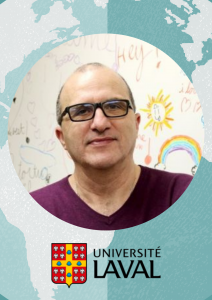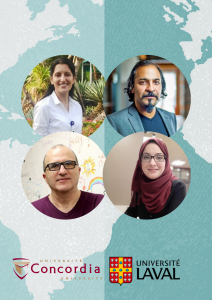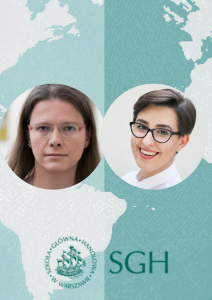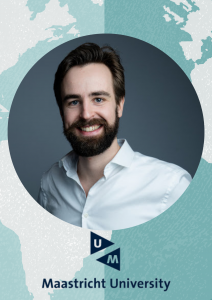Our first Speaker is the exquisite ✨Abdelwahed Mekki-Berrada✨ with his presentation on Scholarly and media Islamophobia: A transnational study of discourses and their impact.
➡️ Abdelwahed Mekki-Berrada, Ph.D., is a full professor in Anthropology of Mental Health and Anthropology of Islam in the Department of Anthropology at Laval University in Quebec City, Canada. His main research and teaching interests revolve around the dynamic interactions between culture, politics, mental health, forced migration, and Islamophobia. He also explores Sufi systems of meaning, knowledge, and action as "self technology" contributing to the complex emergence of an acting and inclusive spiritual subject. His ethnographic encounters take place in India, Morocco, Belgium, France, Portugal and Canada.
➡️ Abdelwahed Mekki-Berrada, Ph.D., is a full professor in Anthropology of Mental Health and Anthropology of Islam in the Department of Anthropology at Laval University in Quebec City, Canada. His main research and teaching interests revolve around the dynamic interactions between culture, politics, mental health, forced migration, and Islamophobia. He also explores Sufi systems of meaning, knowledge, and action as "self technology" contributing to the complex emergence of an acting and inclusive spiritual subject. His ethnographic encounters take place in India, Morocco, Belgium, France, Portugal and Canada.
The second speakers on day one are the talented ✨Vivek Venkatesh, Jihène Hichri, Rawda Harb and Abdelwahed Mekki-Berrada!✨
Their presentation will be on Islamophobia in print media in Québec – a mixed-method analysis.
➡️ Jihène Hichri is a PhD student in education at UQAM and a researcher at Project SOMEONE. Her research focuses on adult education and training, the design and evaluation of training and the transfer of learning. Her research also revolves around the perception of “the other”, social exclusion, hate speech and the prevention of violent radicalization.
➡️ Rawda Harb is a researcher at Project SOMEONE and for the UNESCO Co-Chair for the Prevention of Radicalisation and Violent Extremism, teacher at PACC Adult Education Centre, founder/president of Communité and board member at Head & Hands and a PhD student in the Individualized program at Concordia University. Her experience and passions for the past decade lie in advocating for at-risk youth and communities, and in supporting them online and offline to gather and express themselves freely.
➡️ Vivek Venkatesh is a filmmaker, musician, multimedia artist, curator, and applied learning scientist working at the intersection of public pedagogy and critical digital literacy. He is the UNESCO co-Chair in Prevention of Radicalisation and Violent Extremism, Director of the Centre for the Study of Learning and Performance, and Full Professor of Inclusive Practices in Visual Arts in the Department of Art Education in the Faculty of Fine Arts at Concordia University, Montréal, Canada.
➡️ Abdelwahed Mekki-Berrada, Ph.D., is a full professor in Anthropology of Mental Health and Anthropology of Islam in the Department of Anthropology at Laval University in Quebec City, Canada. His main research and teaching interests revolve around the dynamic interactions between culture, politics, mental health, forced migration, and Islamophobia. He also explores Sufi systems of meaning, knowledge, and action as "self technology" contributing to the complex emergence of an acting and inclusive spiritual subject. His ethnographic encounters take place in India, Morocco, Belgium, France, Portugal and Canada.
➡️ Jihène Hichri is a PhD student in education at UQAM and a researcher at Project SOMEONE. Her research focuses on adult education and training, the design and evaluation of training and the transfer of learning. Her research also revolves around the perception of “the other”, social exclusion, hate speech and the prevention of violent radicalization.
➡️ Rawda Harb is a researcher at Project SOMEONE and for the UNESCO Co-Chair for the Prevention of Radicalisation and Violent Extremism, teacher at PACC Adult Education Centre, founder/president of Communité and board member at Head & Hands and a PhD student in the Individualized program at Concordia University. Her experience and passions for the past decade lie in advocating for at-risk youth and communities, and in supporting them online and offline to gather and express themselves freely.
➡️ Vivek Venkatesh is a filmmaker, musician, multimedia artist, curator, and applied learning scientist working at the intersection of public pedagogy and critical digital literacy. He is the UNESCO co-Chair in Prevention of Radicalisation and Violent Extremism, Director of the Centre for the Study of Learning and Performance, and Full Professor of Inclusive Practices in Visual Arts in the Department of Art Education in the Faculty of Fine Arts at Concordia University, Montréal, Canada.
➡️ Abdelwahed Mekki-Berrada, Ph.D., is a full professor in Anthropology of Mental Health and Anthropology of Islam in the Department of Anthropology at Laval University in Quebec City, Canada. His main research and teaching interests revolve around the dynamic interactions between culture, politics, mental health, forced migration, and Islamophobia. He also explores Sufi systems of meaning, knowledge, and action as "self technology" contributing to the complex emergence of an acting and inclusive spiritual subject. His ethnographic encounters take place in India, Morocco, Belgium, France, Portugal and Canada.
The third speakers of day one are and only ✨Katarzyna Górak-Sosnowska & Joanna Sozańska ✨with their research on the building Blocks of Polish Islamophobia. 'The Case of Polish Youth'
➡️ Katarzyna Górak-Sosnowska earned her PhD in economics at the SGH Warsaw School of Economics and her habilitation in the study of religions at Jagiellonian University in Cracow. She works as an associate professor at the Middle East and Central Asia Unit and is also a vice-Dean of Master's Studies. Her research interests focus on contemporary Middle East and Muslim minorities in Europe. She published five monographs including Deconstructing Islamophobia in Poland (2014) and edited a book on Muslims in Poland and Eastern Europe (2011). Head of a research project Managing spoiled identity: the case of Polish female converts to Islam (funded by the Polish National Science Centre). Head of the Association Forum Dziekanatów (Student Services Employee Association). ➡️ Joanna Sozańska is a PhD Candidate at SGH Warsaw School of Economics and Leader of the Department of Young Scientists Cooperation at the Institute for Security and International Development SDirect24. Joanna Sozańska graduated from Jagiellonian University, faculty Middle Eastern Studies and International Relations. She received Erasmus Mundus scholarships in Morocco and Turkey. She is a laureate of the 2nd edition of the TopMinds Program by the Polish-U.S. Fulbright Commission. Her academic interests include culture and politics of Middle Eastern and North African countries, Arab feminism, political regimes and migration in the Maghreb.
➡️ Katarzyna Górak-Sosnowska earned her PhD in economics at the SGH Warsaw School of Economics and her habilitation in the study of religions at Jagiellonian University in Cracow. She works as an associate professor at the Middle East and Central Asia Unit and is also a vice-Dean of Master's Studies. Her research interests focus on contemporary Middle East and Muslim minorities in Europe. She published five monographs including Deconstructing Islamophobia in Poland (2014) and edited a book on Muslims in Poland and Eastern Europe (2011). Head of a research project Managing spoiled identity: the case of Polish female converts to Islam (funded by the Polish National Science Centre). Head of the Association Forum Dziekanatów (Student Services Employee Association). ➡️ Joanna Sozańska is a PhD Candidate at SGH Warsaw School of Economics and Leader of the Department of Young Scientists Cooperation at the Institute for Security and International Development SDirect24. Joanna Sozańska graduated from Jagiellonian University, faculty Middle Eastern Studies and International Relations. She received Erasmus Mundus scholarships in Morocco and Turkey. She is a laureate of the 2nd edition of the TopMinds Program by the Polish-U.S. Fulbright Commission. Her academic interests include culture and politics of Middle Eastern and North African countries, Arab feminism, political regimes and migration in the Maghreb.
The last speaker of the day, ✨Thomas Frissen ✨,will blow your mind with his research: Internet, the great radicalizer? 'A brief peak into the relationships between seeking for online extremist materials and cognitive radicalization in young adults.'
➡️ Thomas Frissen holds a PhD in Social Sciences (KU Leuven) and is Assistant Professor in Digital Technology and Society at the Faculty of Arts and Social Sciences, at Maastricht University (The Netherlands). His research focuses on the ‘radicalisation’ of and by the online information ecosystem. Previously, he studied relationships between digital media and Salafi-jihadism, rightwing extremism, and communities of non-suicidal self-injurious behavior. Currently he is working on a project that aims to understand and predict how different forms of disinformation spread online. Some of the courses that he is currently teaching are Quantitative Data Analysis, Working with Big Data, and Digitalisation of Politics.
➡️ Thomas Frissen holds a PhD in Social Sciences (KU Leuven) and is Assistant Professor in Digital Technology and Society at the Faculty of Arts and Social Sciences, at Maastricht University (The Netherlands). His research focuses on the ‘radicalisation’ of and by the online information ecosystem. Previously, he studied relationships between digital media and Salafi-jihadism, rightwing extremism, and communities of non-suicidal self-injurious behavior. Currently he is working on a project that aims to understand and predict how different forms of disinformation spread online. Some of the courses that he is currently teaching are Quantitative Data Analysis, Working with Big Data, and Digitalisation of Politics.




